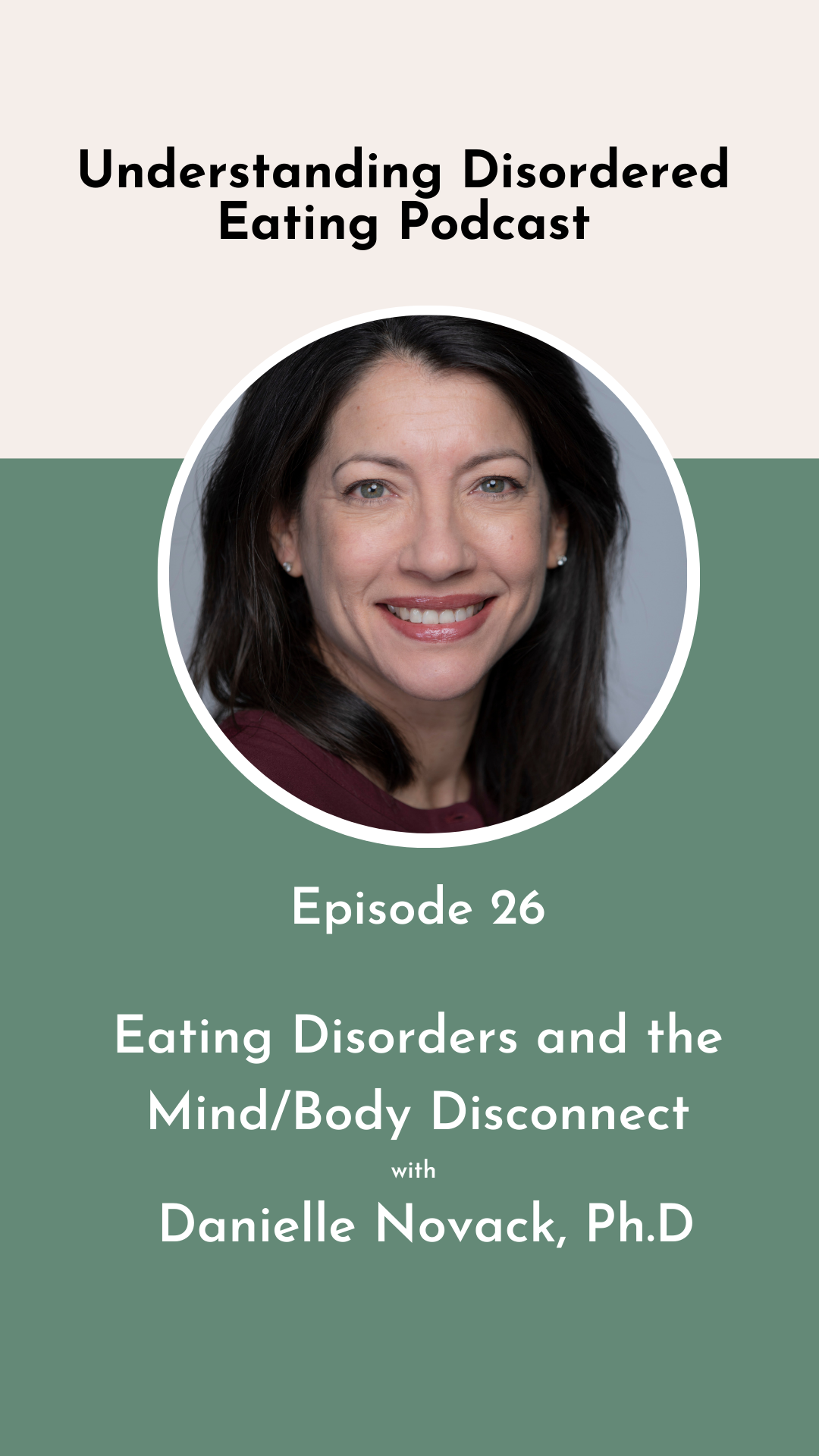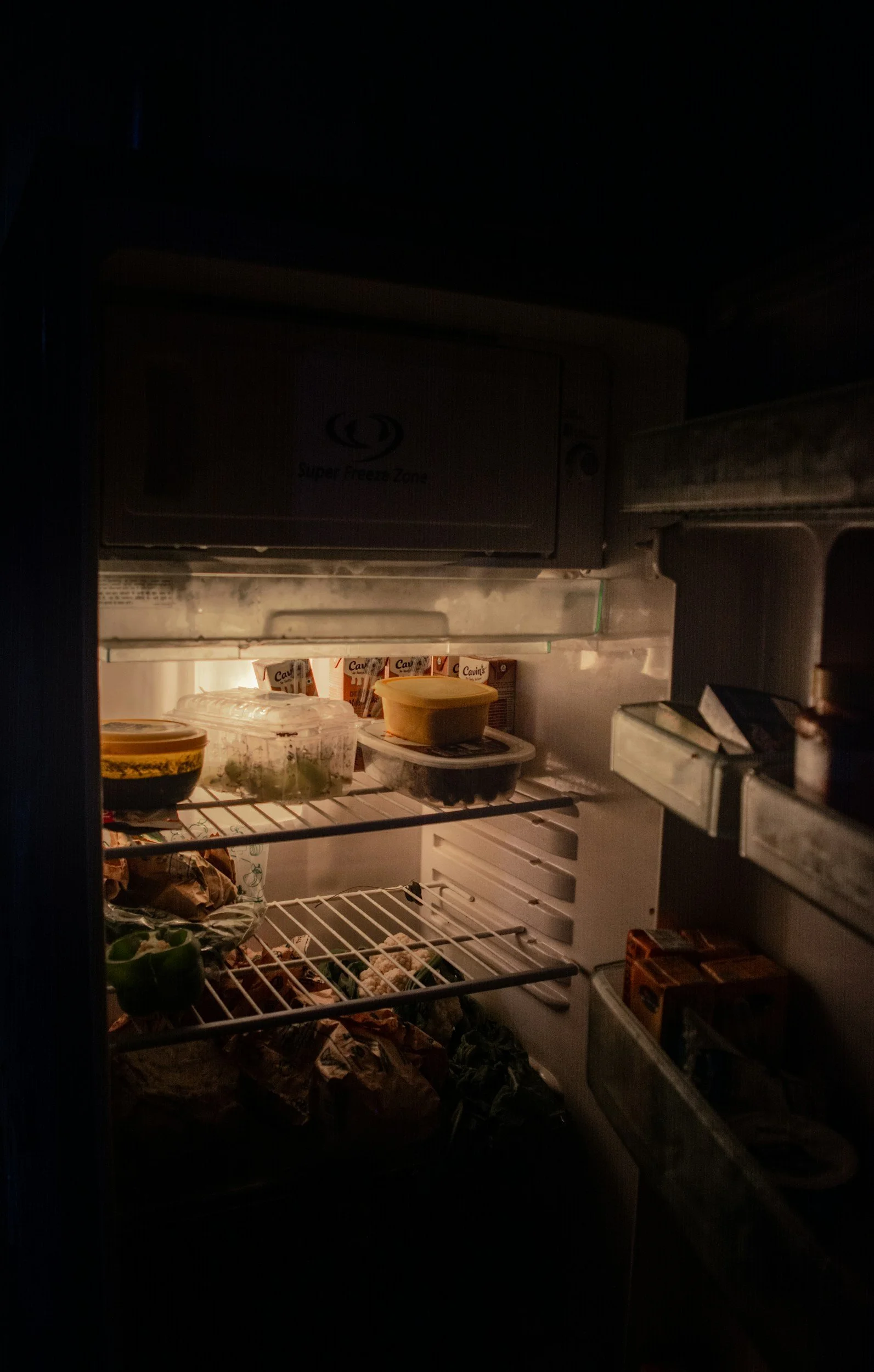Eating Disorders and the Mind/Body Disconnect with Danielle Novack, Ph.D
Dr. Danielle Novack is a pioneer in the world of psychoanalysis and eating disorders. She’s the one who writes the papers I use for myself. She has a profound way of understanding one’s relationship with food and is sharing some of that with us here.
If you’re into unconscious processes, this is your episode. Danielle talks about the topic of dissociation and eating disorders, how it happens, why it happens, and how it comes out throughout our lives. We break down how we see the mind-body disconnect in various ED symptoms. And most importantly, we identify how in the world a person can work through it.
A bit more about her: Dr. Danielle Novack is a clinical psychologist in private practice in Manhattan. She has over 20 years of experience working with eating disorders and concerns related to food, weight and body image. She has written scholarly articles and chapters on the psychoanalytic treatment of eating disorders, and she serves as a clinical supervisor for psychology doctoral students. Dr. Novack is currently completing her psychoanalytic training at the NYU Postdoctoral Program in Psychotherapy and Psychoanalysis.
Listen to the Episode Now
[0:01-1:54] Introductions
Introducing our guest speaker
[1:55- 12:44] The Mind and Body Connection: Conceptualizing Eating Disorders
Eating disorders develop as a mean of protection and also maintain a sense of protection
Dissociation and how does it happen?
Dissociation and eating disorders
What is trauma?
Eating disorder behaviors are often stagnant feelings that cannot be felt as feelings
Eating disorder symptoms can be used to dissociate from feelings
[12:45- 19:07] Eating Disorder and Restrictions
How some people discover that restricting allows them to feel less
Dissociation and eating disorders in the binge-purge cycle
Temporary relief is not necessarily addressing the problem
Other ways to address bingeing
Inserting a pause between the urge and act
Slowing the cycle down and giving yourself a moment to reflect
[19:08-25:44] Ability to Tolerate Emotional Experiences
Often people don’t learn how to regulate emotions
Becoming aware of your emotional experience
Shifting consciousness and losing yourself in the process
What happens when a person continues to engage in dissociation and why is it harmful?
[25:45- 41:34] Challenges in addressing dissociation and disconnect
What causes the dissociation to develop at the first place?
It’s the symptoms that will bring the person into treatment
Address the symptoms first
How do we begin the healing process?
Be aware of the symptoms and reflect where it’s coming
The symptoms can also be a substitute for meaningful relationships
Building relationships with your therapist and team is part of the treatment process
Get to the root of the problem and the underlying issues
[41:35-42:25] Outro
Where to find Dr. Danielle Novack?
Resources Mentioned:
Tweetable Quotes
“I see eating disorders as failed attempts to self-regulate.” - Dr. Danielle Novack
“Without knowing what’s going on in our body, we can’t possibly create important connections.” -Rachelle Heinemann
More From Rachelle
Hey there! I’m Rachelle, the host of the Understanding Disordered Eating Podcast. As a Licensed Mental Health Counselor, I work with clients to make sense of life’s messy emotional experiences.
I believe in the power of deep work and its positive impact on your life in the long term. Learn more about how we can work together here.
You can connect with me on Instagram, through my website or email me directly clicking the links below.
Subscribe & Leave A Review!
If you enjoyed this episode, you can show your support by leaving a review, subscribing, or sharing with someone who may need help. Click here to open this show in iTunes and leave a five star rating and review.
More Episodes








